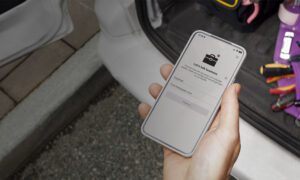COVID may have pushed us past the boiling point. People have been upset about the wealth gap in America for decades, but the growing disparities between the proverbial have and have-nots have been increasingly more evident. Inclusivity proponent James Gutierrez has devoted his professional career to highlighting these disparities and creating platforms to close the wealth gap.
Currently, the US Federal Reserve reports the top 1% of Americans hold almost a third (29%) of all wealth. If you extend that group by just 9% more, the gap is even wider. The top 10% of the richest Americans make nearly double the amount of the bottom 90% combined. The bottom 50% make less than 5.6% of all American wealth as a collective.
These numbers are staggering.
These numbers are enforced by a problematic system that keeps them in place. According to the American Economic Association (AEA), “In 2018, the tax system was regressive at the top-end; the top 400 wealthiest Americans paid a lower average tax rate than the macroeconomic tax rate of 29 percent.”
Fixing A Broken System
People are tired of experiencing this enormous wealth gap. Rather than wait for the government’s hand to be forced by an angry mob of fed-up citizens, some leaders, like James Gutierrez, believe it could happen from a more middle-up direction. Responsible companies can help improve lower-income households and move them toward more stable situations while working to lobby for governmental regulations that support those changes.
The majority of people targeted for a number of financial services, including loans, banking relationships, and credit are in that upper 50%-90%, according to James Gutierrez, Founder of multiple inclusive fintech companies, including Oportun and Aura.
In fact, it’s expensive to be poor. Social entrepreneur James Gutierrez points out:
”For example, if you take auto insurance, a lot of people don’t know this. There are two industries within auto insurance. There’s your standard auto and there’s a non-standard. Non-standard is for a lot of the people we serve who don’t have the right credit score, don’t have a credit score, may not have a driver’s license to that particular point, and they pay a lot more.”
People who want to get a loan without a sparkling credit history are left with far higher interest rates. This leads to higher rates of default and disproportionate hardships for people that aren’t starting from a financially secure place.
Gutierrez’s Aura and Oportun helped these people “hack the system” that kept them from securing financial opportunities. Both companies leveraged innovative technology to provide consumers with a credit score, the literal first step toward financial health. Both of these companies garnered CDFI certification. Like many other CDFIs committed to serving traditionally underrepresented communities, they were historically underinvested in, and thus, have not been able to scale to serve growing consumer needs.
According to inclusivity proponents like James Gutierrez, additional working capital is needed for companies that are trying to break the traditional mold. Gutierrez points out, funding is needed for “companies like Aura, Oportun, black-owned banks and CDFIs that are trying to tile the balance and serve these communities in a different way. The status quo doesn’t make anything better.”
Ongoing Inequalities
While the wealth gap is a problem for all Americans, it is hurting minority families more than the average white families. Thomas M. Shapiro wrote in “Toxic Inequality”:
“African Americans are effectively stymied from generating and retaining a wealth of their own not simply by continuing racial discrimination but also by senseless policies that protect existing wealth… Too often missing in today’s dialogue about inequality is this binding race and wealth linkage. Failure to tackle the nexus of race and wealth will lead, at best, to only small ameliorations at the worst edges of inequality.”
History has shown that hardships have been harder on minority families than white families. While some might say race shouldn’t be the conversation in socioeconomics, it plays a huge part. While both white and black families faced losses during the 2007-2009 housing market crash, the recovery story was very different. From 2009-2011, white households began to gain back wealth and had no further losses. Black households, on the other hand, continued to experience loss, with the average black household losing 40% of non-home-equity wealth during this same time. The early recovery wasn’t a recovery for many minority homes.
The COVID-19 Conundrum
COVID-19 has proven to be a bigger challenge for minorities as well. While unemployment spiked to a record high for both white and minority workers in April 2020, the recovery process has not remained the same. White unemployment slowly started to lower in June 2020 for white workers (12.4%), and it continued to rise for black workers (16.8%), as the highest in over a decade.
According to the Economic Policy Institute (EPI), “In the second quarter of 2020, African American workers had the highest unemployment rate nationally, at 17.4%, following by Hispanic workers (at 16.9%), Asian workers (at 13.3%), and white workers (at 10.8%).”
While COVID-19 unemployment rates have hit underserved communities hard, the health impacts have been bigger as well. “Disproportionately, black and brown communities have been adversely impacted health-wise by COVID,” James Gutierrez says. “There’s been a lot of death, people getting sick and understanding why life insurance is valuable for a family as a security… yet there are still no tailored offerings to this community.” For this reason, James Gutierrez is currently developing a new mobile-first platform aimed at providing insurance and banking solutions for Latin-X and traditionally underserved populations.
The Problem With “Cash Options”
There is more of an attitude of “you get what you get” when it comes to the poorer communities. Those who don’t have the credit scores built up will be relegated to lesser (more expensive) services with far fewer options or given the option to pay in cash. For these communities, the average cost of borrowing rests at a staggering 230%. The problem is, with the cash option, they still aren’t building credit. The only way for someone to dig themselves out of a low credit score is to very carefully get into manageable debt that they pay off regularly for months (or even years), relying on a steady income and no bumps along the way.
What seems easy and normal for the upper 50% of American households can seem insurmountable and pointless for the lower 50%. Not to mention, all that work is just for the option to go into a higher bracket of debt!
Spearheading Change
Inclusivity leaders like James Gutierrez know this practice only serves to deepen the wealth gap and hold people hostage to debt. Gutierrez’s work with Aura provided low-interest loans to those who needed financing. He is working to extend his inclusive banking services into other industries, maybe even creating a collective that is capable of growing with its customers as they move up into higher tax brackets. He wants to see the wealth gaps close, especially among minority households that face larger hurdles on average. In his newest mobile-first venture, James Gutierrez aims to empower traditionally underserved consumers with the tools needed to gain financial security.
Rather than accept the one-size-fits-all opportunistic exploitation that is gutting these communities, James Gutierrez is dreaming up new approaches. Transparency, he says, is the number one thing for truly helping these hard-working individuals build wealth and not debt.
Well-versed in corporate responsibility, James Gutierrez is pushing to see this on a governmental level for private companies. His ideas include a reporting scheme that is backed by government benefits and measures various company values. Companies that want the benefits would have their reports made public so shareholders can see where they stand and receive lower tax rates on their capital gains. James points out that change is often better when you can offer a value and not just a penalty:
“I think policy should always have carrots and not just sticks. I think, unfortunately on both sides, it’s either all carrot or all stick. It needs to be a combination. Just regulation by itself and enforcement—while it’s needed—doesn’t always achieve the outcome. If there’s an incentive for them to be a better citizen, I think we’ll see more companies trying to compete.”
Rather than watch the pot boil over with desperation and hopelessness, now is the time for companies to make a positive difference for marginalized communities. Already developing a new solution to these ongoing financial inequalities, James Gutierrez looks forward to launching an innovative platform tailored to the bespoke needs of Latin-X and underserved consumers. The status quo is reinforced by a problematic system that keeps senseless policies that protect existing wealth in place. Through the work of inclusivity innovators like James Gutierrez, these staggering statistics can be changed.



































